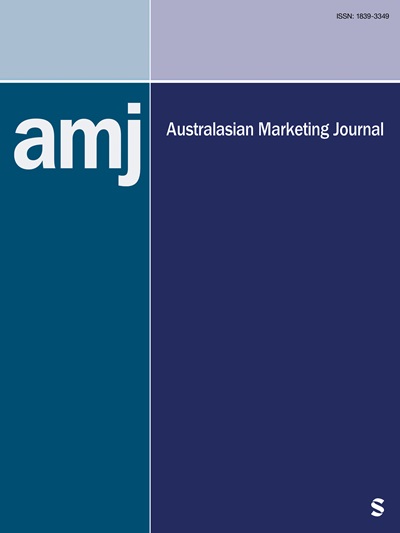Lay Beliefs About the World Affect Preferences for Sustainable Hotel Offerings
IF 3.8
Q2 BUSINESS
引用次数: 0
Abstract
Prior research has established that consumers with higher levels of biospheric values are more likely to engage in sustainable behaviors. Such findings assume that tourism practitioners should solely focus their marketing efforts on consumers with high levels of biospheric values. The present research reexamines such typical expectations by investigating how lay beliefs about the world elicited by advertising can encourage consumers with low levels of biospheric values to engage in sustainable behaviors. Results of two experimental studies show that, among consumers with low levels of biospheric values, those with a malleable (vs. fixed) lay belief about the world exhibit stronger preferences for sustainable hotels offerings because they are more hopeful that the sustainable efforts from the hotels can create a positive change. These findings contribute to the literature by demonstrating the role of lay beliefs on consumers’ sustainable behaviors and establishing the underlying mechanism. In addition, this research provides a novel insight about how tourism practitioners can appeal to unsustainable consumers, highlighting how the tourism industry can create positive behavior change toward consumers’ sustainable behaviors.对世界的信仰影响对可持续酒店产品的偏好
先前的研究已经证实,拥有更高生物圈价值水平的消费者更有可能从事可持续的行为。这些发现假设旅游从业者应该只把他们的营销努力集中在具有高水平生物圈价值的消费者身上。目前的研究通过调查广告所引发的俗人对世界的信念如何能够鼓励低水平生物圈价值的消费者参与可持续的行为,重新审视了这种典型的期望。两项实验研究的结果表明,在生物圈价值水平较低的消费者中,那些对世界具有可塑(相对于固定)信念的消费者对可持续酒店产品表现出更强的偏好,因为他们更希望酒店的可持续努力能够创造积极的变化。本研究的发现有助于揭示外行人信念对消费者可持续行为的影响,并建立其潜在机制。此外,本研究还提供了关于旅游从业者如何吸引不可持续消费者的新见解,强调了旅游业如何为消费者的可持续行为创造积极的行为改变。
本文章由计算机程序翻译,如有差异,请以英文原文为准。
求助全文
约1分钟内获得全文
求助全文
来源期刊

Australasian Marketing Journal
BUSINESS-
CiteScore
14.90
自引率
16.70%
发文量
25
期刊介绍:
The Australasian Marketing Journal (AMJ) is the official journal of the Australian and New Zealand Marketing Academy (ANZMAC). It is an academic journal for the dissemination of leading studies in marketing, for researchers, students, educators, scholars, and practitioners. The objective of the AMJ is to publish articles that enrich and contribute to the advancement of the discipline and the practice of marketing. Therefore, manuscripts accepted for publication will be theoretically sound, offer significant research findings and insights, and suggest meaningful implications and recommendations. Articles reporting original empirical research should include defensible methodology and findings consistent with rigorous academic standards.
 求助内容:
求助内容: 应助结果提醒方式:
应助结果提醒方式:


